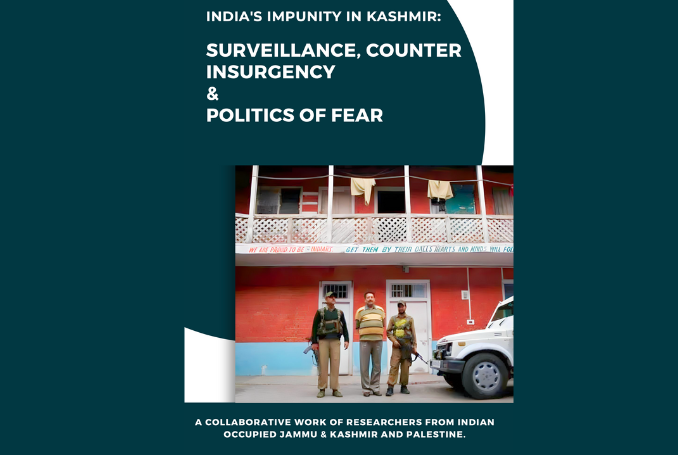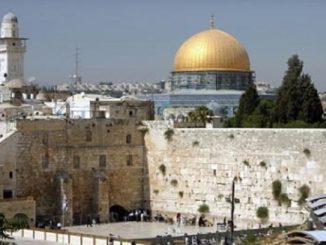
At the beginning of February, Indian news outlets reported about what they termed an “anti-encroachment drive” in the occupied Kashmir Valley.
While the Press Trust of India’s reporting framed the Indian-aligned authorities’ actions as “recovering” land on which “illegal structures” were built, reporting from more local outlets offered a different picture.
News websites such as The Kashmiriyat highlighted the impact of these land grabs on local business owners, hundreds of whom are due to lose the premises upon which they rely on to earn their livings. Kashmiri scholars and commentators, such as Mohamed Junaid, are unequivocal in how they understand this process: a “disaster” enacted by the “settler colonial state”.
Similarly to what happens in Occupied Palestine, Kashmiris have had the colonial concept of “state lands” mobilized against them as part of a regime of permissions that seeks, ironically, to cast Indigenous communities as illegal occupants of their own land, which otherwise is supposedly meant to belong to the occupying state as per such a regime.
Observers and witnesses to the Israeli state’s perpetual confiscation and expropriation of Palestinian land will be quick to notice how similar the practices enacted by both colonial powers are. While Kashmiri resistance leaders and activists have long made analogies between their resistance and that of Palestinians, the Indian occupation of their lands has, in recent decades, accelerated towards intensely resembling the Israeli model of settler colonialism.
Kashmiris, according to the academic Ather Zia, “herald the nation of Palestinian struggle against the occupation of its land as iconic, pioneering and a beacon for just struggles for right to existence elsewhere”.
Indeed, Hilal Mir points out how the exiled Kashmiri resistance leader Muhammad Farooq Rahmani “writes in his Urdu book “Azadi ki Talaash: Kashmir ki Jidojihad, Manzil ba Manzil” (“Search for Freedom: Kashmir’s Struggle, Destination by Destination”) that a man died of a bullet injury in Srinagar and another suffered a bullet injury in the leg in the northern Kashmir area of Sopore during widespread protests in many districts in August 1969” in the aftermath of Denis Michael Rohan’s attack on the Al Aqsa Mosque.
More recently, Indian authorities have begun to take note of the effective weight and strategic significance of the analogy between the suffering of Palestinians and Kashmiris. For example, Azad Essa, in his book Hostile Homelands: The New Alliance Between India and Israel, describes how the Indian government mobilized a number of tactics in 2011 to intimidate Al Jazeera staff after the news outlet published an article entitled “Kashmir: South Asia’s Palestine”.
Ten years later, as Palestinians in the entirety of historic Palestine protested in unity against Israel’s encroachment into Sheikh Jarrah and other Palestinian neighborhoods, Sarjan Barkati, a Kashmiri cleric, was arrested for including a prayer about Palestine in his Eid sermon and “(praising) the courage of the people of Palestine”.
A series of tweets made during the same period by the Kashmir Zone Police stated that “J&K Police is keeping a very close watch on elements who are attempting to leverage the unfortunate situation in Palestine to disturb public peace and order in the Kashmir valley”.
With these parallels and points of connection in mind, the Legal Forum for Kashmir has produced a report on surveillance and counter-insurgency measures that the Indian authorities employ in Kashmir.
The report was a collaborative/joint research project by anonymous Kashmiri and Palestinian researchers.
While more extensive than simply addressing points of connection and similarities, the report makes reference to several areas where the lived experience of Kashmiris under Indian colonization resembles that of Palestinians under Israeli colonization. For example, the report discusses India’s use of the Pegasus software, produced by the Israeli cyber-intelligence company NSO, to spy on 25 Kashmiri citizens including political and religious leaders, activists, journalists, and those who work in close proximity to them.
This report is important because it demonstrates the arsenal of surveillance and counter-insurgency tactics that impact civilians living under colonial rule while also making links between now-connected experiences of (settler) colonialism across the world.
As Israel and India strengthen their alliance with one another and entrench their respective colonial projects into global circuits of political and economic power and influence, the need for documentation and analyses such as those included in this report will only increase in relevance and urgency.







